 BC Minister of Forests Bruce Ralston, spoke on the need to transition to more resilient forests and to increase the value and values generated from them. In addition to more value-added manufactured products, Rolston said this includes the value of increased forest health, climate change, biodiversity, and wildfire resilience. Key to achieving this are the many government initiatives introduced over the past two years. Examples include increasing fibre recovery, forest rehabilitation after wildfires, sustainable logging practices, fibre distribution to small value-added producers, and the introduction of land use tables. In support of the latter, the Minister announced that the province is investing $38 million for province-wide LiDAR mapping over six years to develop high-resolution data critical to forestry, wildfire and fuels, surface hydrology, agriculture, ecology, wildlife, habitat management and restoration, geology and geomorphology. Although it may take a while to complete, Rolston said he was confident the forest landscape plans will provide more certainty on harvest levels, which in turn will generate more industry investments in the future.
BC Minister of Forests Bruce Ralston, spoke on the need to transition to more resilient forests and to increase the value and values generated from them. In addition to more value-added manufactured products, Rolston said this includes the value of increased forest health, climate change, biodiversity, and wildfire resilience. Key to achieving this are the many government initiatives introduced over the past two years. Examples include increasing fibre recovery, forest rehabilitation after wildfires, sustainable logging practices, fibre distribution to small value-added producers, and the introduction of land use tables. In support of the latter, the Minister announced that the province is investing $38 million for province-wide LiDAR mapping over six years to develop high-resolution data critical to forestry, wildfire and fuels, surface hydrology, agriculture, ecology, wildlife, habitat management and restoration, geology and geomorphology. Although it may take a while to complete, Rolston said he was confident the forest landscape plans will provide more certainty on harvest levels, which in turn will generate more industry investments in the future.
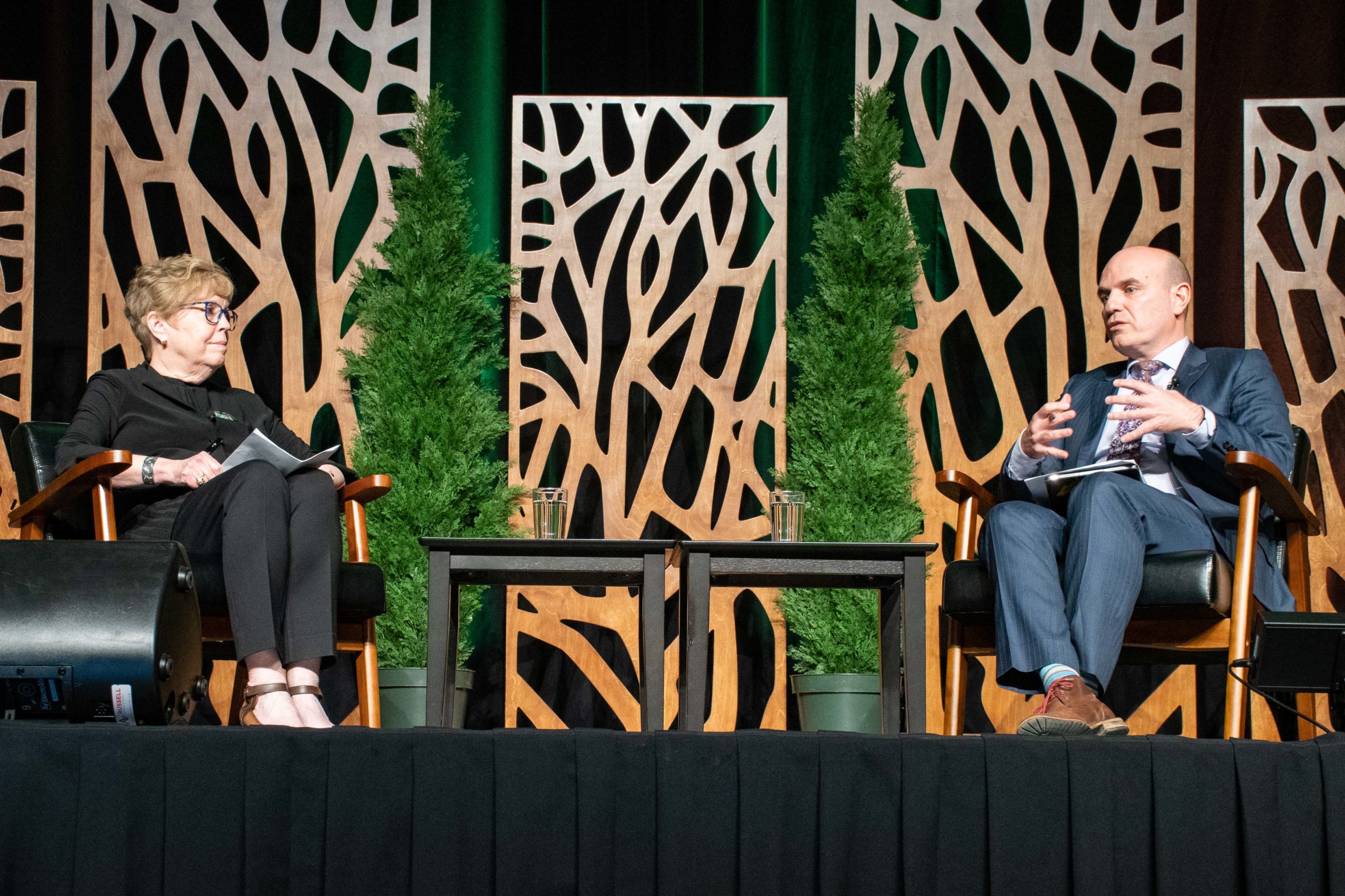 BC Minister of Water, Land and Resource Stewardship Nathan Cullen, joined COFI president and CEO Linda Coady for an armchair dialogue on approaches to land use planning in BC. Coady introduced the session with an overview of the three key transitions underway: i) DRIPA implementation, ii) How We Plan – more comprehensive, inclusive, and area-based plans; and iii) What We Plan – ecosystem resilience and sustainable management. Coady noted industry’s support for the direction but uncertainty on “how we get there from here”. Minister Ralston noted that his ministry “was created to plan” and has done much of the heavy lifting upfront. DRIPA and the landscape level plans are key, and if done right, Cullen believes the desired certainty is achievable. Questioned on the concern of potential incremental AAC impacts of BC signing onto the recent Biodiversity Summit’s 30×30 goal (30% effective protection by 2030), Cullen said he believes it could be covered within the landscaped plans, adding it’s a “people up process, not a benevolent top down one”.
BC Minister of Water, Land and Resource Stewardship Nathan Cullen, joined COFI president and CEO Linda Coady for an armchair dialogue on approaches to land use planning in BC. Coady introduced the session with an overview of the three key transitions underway: i) DRIPA implementation, ii) How We Plan – more comprehensive, inclusive, and area-based plans; and iii) What We Plan – ecosystem resilience and sustainable management. Coady noted industry’s support for the direction but uncertainty on “how we get there from here”. Minister Ralston noted that his ministry “was created to plan” and has done much of the heavy lifting upfront. DRIPA and the landscape level plans are key, and if done right, Cullen believes the desired certainty is achievable. Questioned on the concern of potential incremental AAC impacts of BC signing onto the recent Biodiversity Summit’s 30×30 goal (30% effective protection by 2030), Cullen said he believes it could be covered within the landscaped plans, adding it’s a “people up process, not a benevolent top down one”.



/https://www.thestar.com/content/dam/thestar/business/2023/03/24/norad-haiti-migration-critical-minerals-to-top-agenda-for-trudeau-and-biden/20230323170348-8238dbe5631f18b5ad1c7cb61a1b248dbbea32d6ab665d717f899ce12dd51a99.jpg)

 Justine Karst, a mycologist at the University of Alberta, feared things had gone too far when her son got home from eighth grade and told her he had learned that trees could talk to each other through underground networks. Jason Hoeksema of the University of Mississippi, had a similar feeling. Few recent scientific discoveries have captured the public’s imagination quite like the wood-wide web — a wispy network of fungal filaments hypothesized to shuttle nutrients and information through the soil and to help forests thrive. …But as the wood-wide web has gained fame, it has also inspired a backlash among scientists. …Dr. Karst, Dr. Hoeksema and Melanie Jones… found little evidence that shared fungal networks help trees to communicate, swap resources or thrive.
Justine Karst, a mycologist at the University of Alberta, feared things had gone too far when her son got home from eighth grade and told her he had learned that trees could talk to each other through underground networks. Jason Hoeksema of the University of Mississippi, had a similar feeling. Few recent scientific discoveries have captured the public’s imagination quite like the wood-wide web — a wispy network of fungal filaments hypothesized to shuttle nutrients and information through the soil and to help forests thrive. …But as the wood-wide web has gained fame, it has also inspired a backlash among scientists. …Dr. Karst, Dr. Hoeksema and Melanie Jones… found little evidence that shared fungal networks help trees to communicate, swap resources or thrive. You’re invited to the party! Gerry Burch is Canada’s oldest and most highly regarded forester. Born August 2 in Cranbrook, BC, in 1923, Burch attended UBC Forestry in the 1940s, where he was an active student leader. Graduating with a Bachelor of Applied Science, majoring in Forest Engineering, in 1948, he went on to receive his Registered Professional Forester designation and pioneer significant improvements in sustainable forestry practices, especially during his 41-year service with BC Forest Products Ltd. as a Chief Forester. Two birthday events are scheduled for September, one in Vancouver and the other in Duncan on Vancouver Island. Read on to find out the details and register to attend!
You’re invited to the party! Gerry Burch is Canada’s oldest and most highly regarded forester. Born August 2 in Cranbrook, BC, in 1923, Burch attended UBC Forestry in the 1940s, where he was an active student leader. Graduating with a Bachelor of Applied Science, majoring in Forest Engineering, in 1948, he went on to receive his Registered Professional Forester designation and pioneer significant improvements in sustainable forestry practices, especially during his 41-year service with BC Forest Products Ltd. as a Chief Forester. Two birthday events are scheduled for September, one in Vancouver and the other in Duncan on Vancouver Island. Read on to find out the details and register to attend!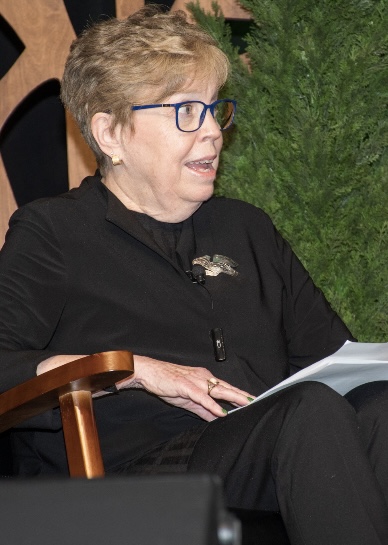
 BC Premier Eby and COFI CEO Linda Coady wrap up the 2023 Council of Forest Industries Conference with the following Q&A [lightly edited for clarity]:
BC Premier Eby and COFI CEO Linda Coady wrap up the 2023 Council of Forest Industries Conference with the following Q&A [lightly edited for clarity]: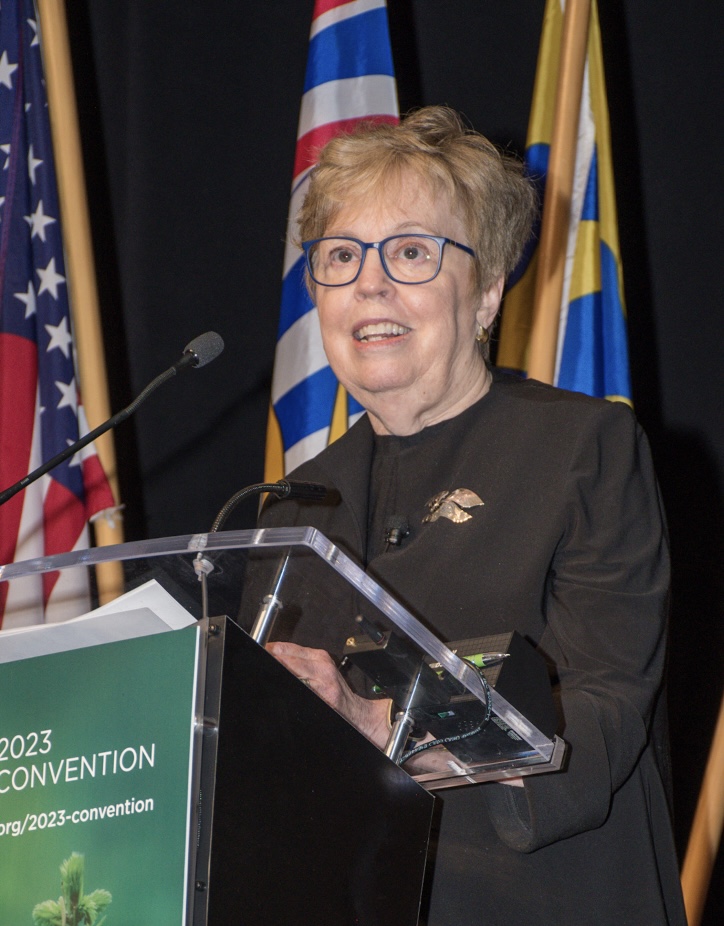
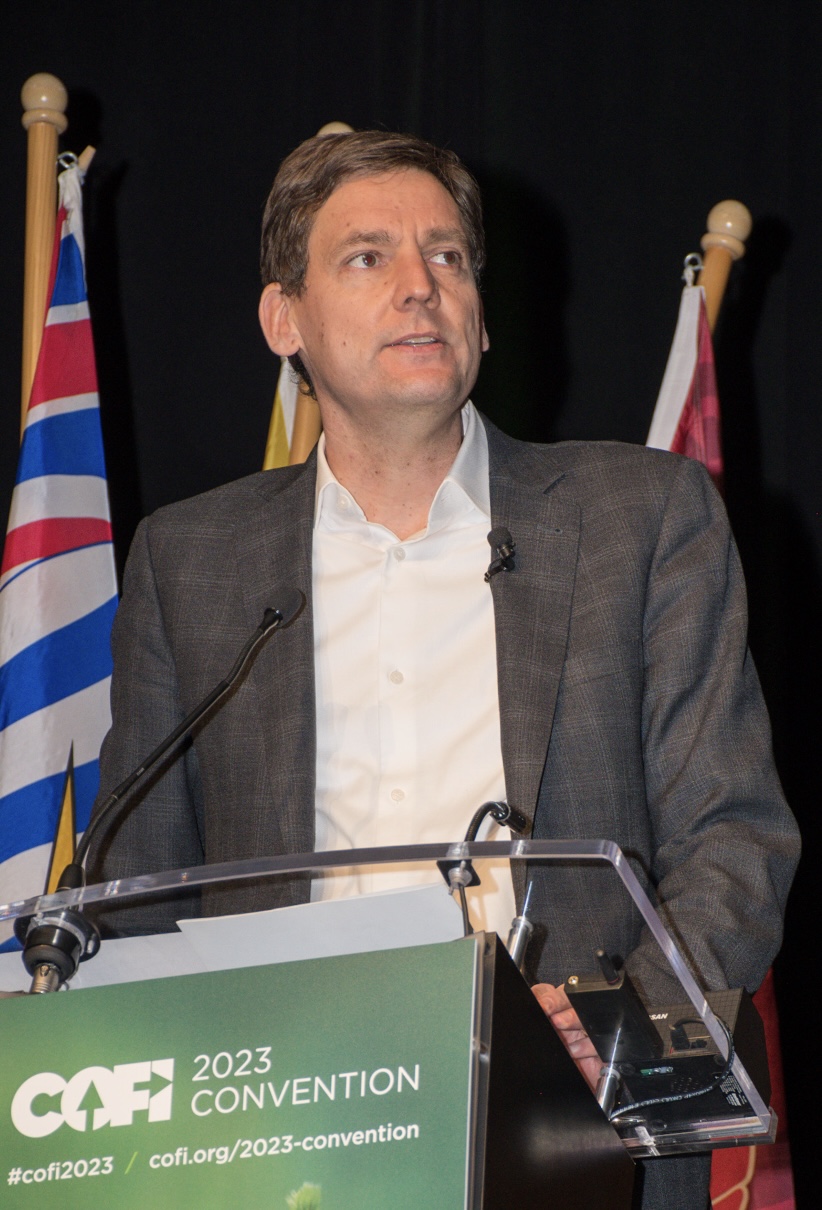
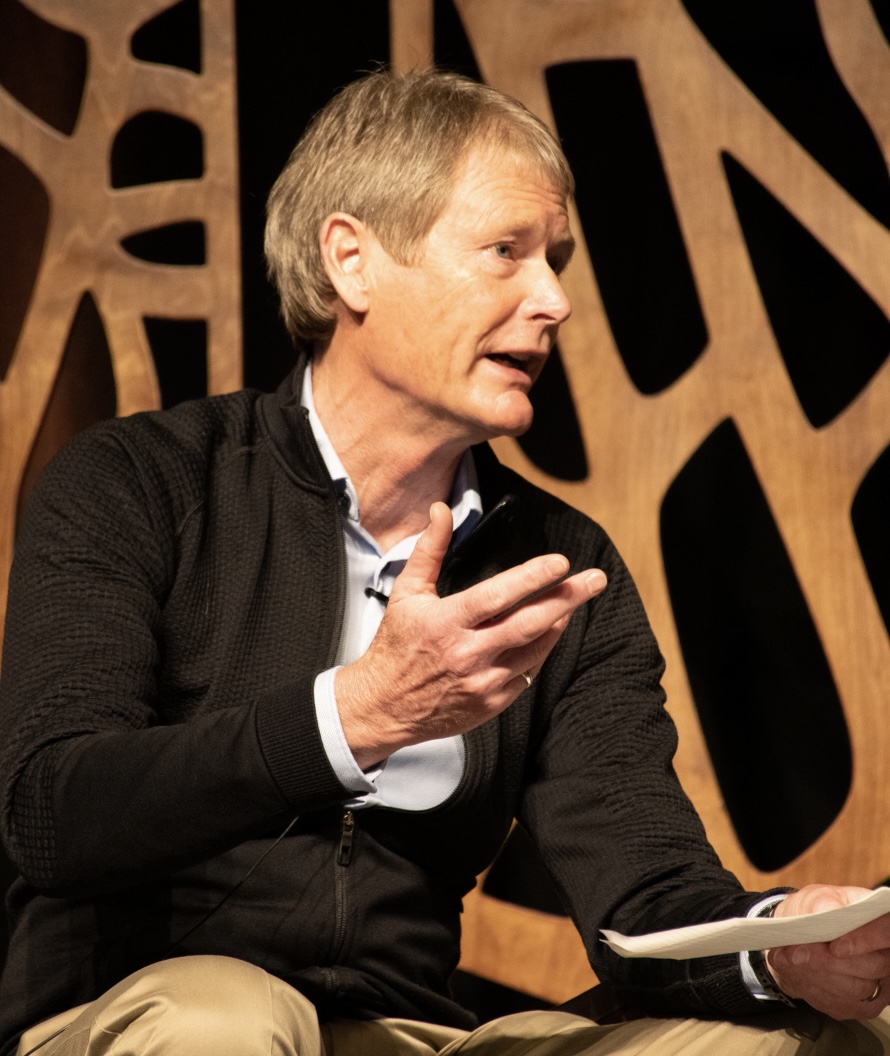
 BC Minister of Forests Bruce Ralston, spoke on the need to transition to more resilient forests and to increase the value and values generated from them. In addition to more value-added manufactured products, Rolston said this includes the value of increased forest health, climate change, biodiversity, and wildfire resilience. Key to achieving this are the many government initiatives introduced over the past two years. Examples include increasing fibre recovery, forest rehabilitation after wildfires, sustainable logging practices, fibre distribution to small value-added producers, and the introduction of land use tables. In support of the latter, the Minister announced that the province is investing $38 million for province-wide LiDAR mapping over six years to develop high-resolution data critical to forestry, wildfire and fuels, surface hydrology, agriculture, ecology, wildlife, habitat management and restoration, geology and geomorphology. Although it may take a while to complete, Rolston said he was confident the forest landscape plans will provide more certainty on harvest levels, which in turn will generate more industry investments in the future.
BC Minister of Forests Bruce Ralston, spoke on the need to transition to more resilient forests and to increase the value and values generated from them. In addition to more value-added manufactured products, Rolston said this includes the value of increased forest health, climate change, biodiversity, and wildfire resilience. Key to achieving this are the many government initiatives introduced over the past two years. Examples include increasing fibre recovery, forest rehabilitation after wildfires, sustainable logging practices, fibre distribution to small value-added producers, and the introduction of land use tables. In support of the latter, the Minister announced that the province is investing $38 million for province-wide LiDAR mapping over six years to develop high-resolution data critical to forestry, wildfire and fuels, surface hydrology, agriculture, ecology, wildlife, habitat management and restoration, geology and geomorphology. Although it may take a while to complete, Rolston said he was confident the forest landscape plans will provide more certainty on harvest levels, which in turn will generate more industry investments in the future. BC Minister of Water, Land and Resource Stewardship Nathan Cullen, joined COFI president and CEO Linda Coady for an armchair dialogue on approaches to land use planning in BC. Coady introduced the session with an overview of the three key transitions underway: i) DRIPA implementation, ii) How We Plan – more comprehensive, inclusive, and area-based plans; and iii) What We Plan – ecosystem resilience and sustainable management. Coady noted industry’s support for the direction but uncertainty on “how we get there from here”. Minister Ralston noted that his ministry “was created to plan” and has done much of the heavy lifting upfront. DRIPA and the landscape level plans are key, and if done right, Cullen believes the desired certainty is achievable. Questioned on the concern of potential incremental AAC impacts of BC signing onto the recent Biodiversity Summit’s 30×30 goal (30% effective protection by 2030), Cullen said he believes it could be covered within the landscaped plans, adding it’s a “people up process, not a benevolent top down one”.
BC Minister of Water, Land and Resource Stewardship Nathan Cullen, joined COFI president and CEO Linda Coady for an armchair dialogue on approaches to land use planning in BC. Coady introduced the session with an overview of the three key transitions underway: i) DRIPA implementation, ii) How We Plan – more comprehensive, inclusive, and area-based plans; and iii) What We Plan – ecosystem resilience and sustainable management. Coady noted industry’s support for the direction but uncertainty on “how we get there from here”. Minister Ralston noted that his ministry “was created to plan” and has done much of the heavy lifting upfront. DRIPA and the landscape level plans are key, and if done right, Cullen believes the desired certainty is achievable. Questioned on the concern of potential incremental AAC impacts of BC signing onto the recent Biodiversity Summit’s 30×30 goal (30% effective protection by 2030), Cullen said he believes it could be covered within the landscaped plans, adding it’s a “people up process, not a benevolent top down one”. The BC Council of Forest Industries (COFI) kicked-off their annual forestry conference in Prince George, BC—after a five year Covid-enhanced absence — with a sold-out Ice Breaker. The two-day conference promises to be an outstanding event given the expected attendance and high profile speakers such the Hon. David Eby, Premier of BC, Regional Chief Terry Teegee, BC Assembly of First Nations, and BC Minister of Forests, Hon. Bruce Ralston. Linda Coady, President and CEO of COFI opened the conference noting her delight to be in a room connecting with so many provincial, municipal and First Nation leaders as well as the many firms and individuals that service and supply our mills. The event sponsor, Shawn Ellsworth, Partner in KPMG’s forest certification, ESG and Climate Change practice shared the stage, emphasizing the importance of the event for networking and dialog on the many issues facing the industry. And the import to KPMG—as auditors, tax advisors, forest certifiers, GHG and climate risk assessors, ESG and forest carbon consultants.
The BC Council of Forest Industries (COFI) kicked-off their annual forestry conference in Prince George, BC—after a five year Covid-enhanced absence — with a sold-out Ice Breaker. The two-day conference promises to be an outstanding event given the expected attendance and high profile speakers such the Hon. David Eby, Premier of BC, Regional Chief Terry Teegee, BC Assembly of First Nations, and BC Minister of Forests, Hon. Bruce Ralston. Linda Coady, President and CEO of COFI opened the conference noting her delight to be in a room connecting with so many provincial, municipal and First Nation leaders as well as the many firms and individuals that service and supply our mills. The event sponsor, Shawn Ellsworth, Partner in KPMG’s forest certification, ESG and Climate Change practice shared the stage, emphasizing the importance of the event for networking and dialog on the many issues facing the industry. And the import to KPMG—as auditors, tax advisors, forest certifiers, GHG and climate risk assessors, ESG and forest carbon consultants.
 [This article is part of our partnership with the Western Canada SFI Implementation Committee and our jointly hosted
[This article is part of our partnership with the Western Canada SFI Implementation Committee and our jointly hosted  [This article is part of our partnership with the Western Canada SFI Implementation Committee and our jointly hosted
[This article is part of our partnership with the Western Canada SFI Implementation Committee and our jointly hosted 
 The
The  Nathanson, Schachter and Thompson LLP is pleased to announce that leading litigation counsel Mark S. Oulton has joined the partnership. Mark has extensive experience at trial, on appeal, and before administrative tribunals in a range of commercial litigation and administrative law matters, with a particular focus on forestry and commercial disputes. Legal publications Lexpert and Chambers Canada recognize Mark as a leading forestry law practitioner. Benchmark Litigation recognizes Mark for corporate commercial litigation and administrative law and Best Lawyers Canada recognizes Mark for these and natural resource law as well. In addition to his counsel work, Mark regularly contributes to legal scholarship and education, including through contributions to the Continuing Legal Education Society of BC and the Advocates Society. …Recognized as one of Canada’s Top 10 Litigation Firms, NST is known for its intellectual rigour, high quality advocacy, responsiveness to clients’ needs, and its outstanding team.
Nathanson, Schachter and Thompson LLP is pleased to announce that leading litigation counsel Mark S. Oulton has joined the partnership. Mark has extensive experience at trial, on appeal, and before administrative tribunals in a range of commercial litigation and administrative law matters, with a particular focus on forestry and commercial disputes. Legal publications Lexpert and Chambers Canada recognize Mark as a leading forestry law practitioner. Benchmark Litigation recognizes Mark for corporate commercial litigation and administrative law and Best Lawyers Canada recognizes Mark for these and natural resource law as well. In addition to his counsel work, Mark regularly contributes to legal scholarship and education, including through contributions to the Continuing Legal Education Society of BC and the Advocates Society. …Recognized as one of Canada’s Top 10 Litigation Firms, NST is known for its intellectual rigour, high quality advocacy, responsiveness to clients’ needs, and its outstanding team.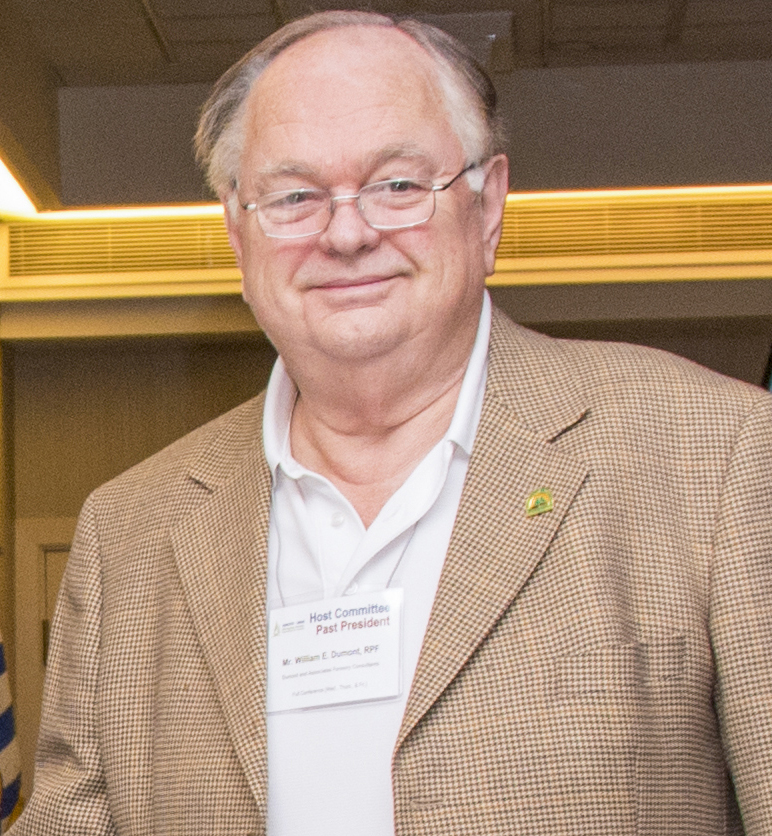

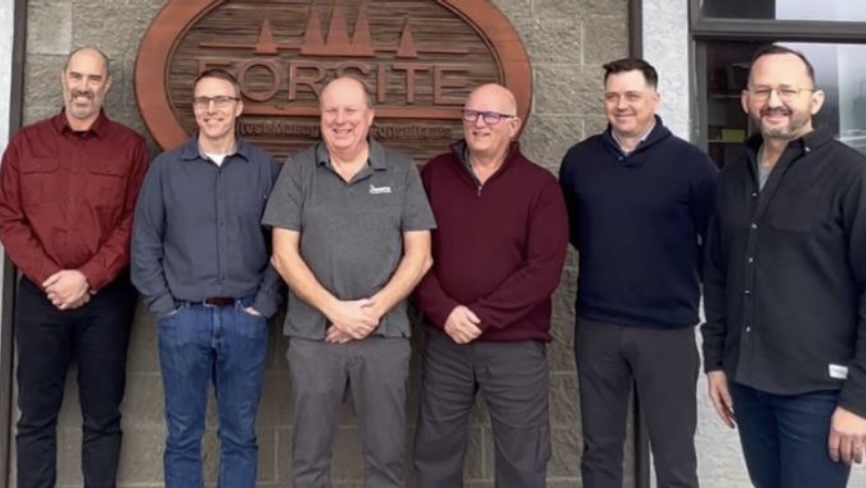 Salmon Arm, BC – Forsite is excited to announce that Frontline Operations Group is joining the Forsite team as we continue to build an innovative and industry leading fire services team. This collaboration further expands our wildfire and forestry expertise, fortifying our commitment to our clients across Canada as we respond strategically and collaboratively to wildfire risks. Frontline Operations is an industry leader in integrated wildfire and forestry services. Frontline Operation’s partners John and Andy have five decades of combined wildland fire management experience. Along with their staff, they will bolster the Forsite team to apply significant industry expertise, innovation and operational delivery excellence to wildfire risk assessment, community planning, fuel management, cultural and prescribed fire, and wildfire operations.
Salmon Arm, BC – Forsite is excited to announce that Frontline Operations Group is joining the Forsite team as we continue to build an innovative and industry leading fire services team. This collaboration further expands our wildfire and forestry expertise, fortifying our commitment to our clients across Canada as we respond strategically and collaboratively to wildfire risks. Frontline Operations is an industry leader in integrated wildfire and forestry services. Frontline Operation’s partners John and Andy have five decades of combined wildland fire management experience. Along with their staff, they will bolster the Forsite team to apply significant industry expertise, innovation and operational delivery excellence to wildfire risk assessment, community planning, fuel management, cultural and prescribed fire, and wildfire operations. 
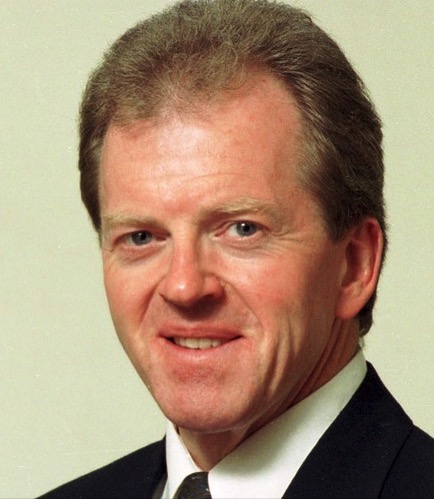


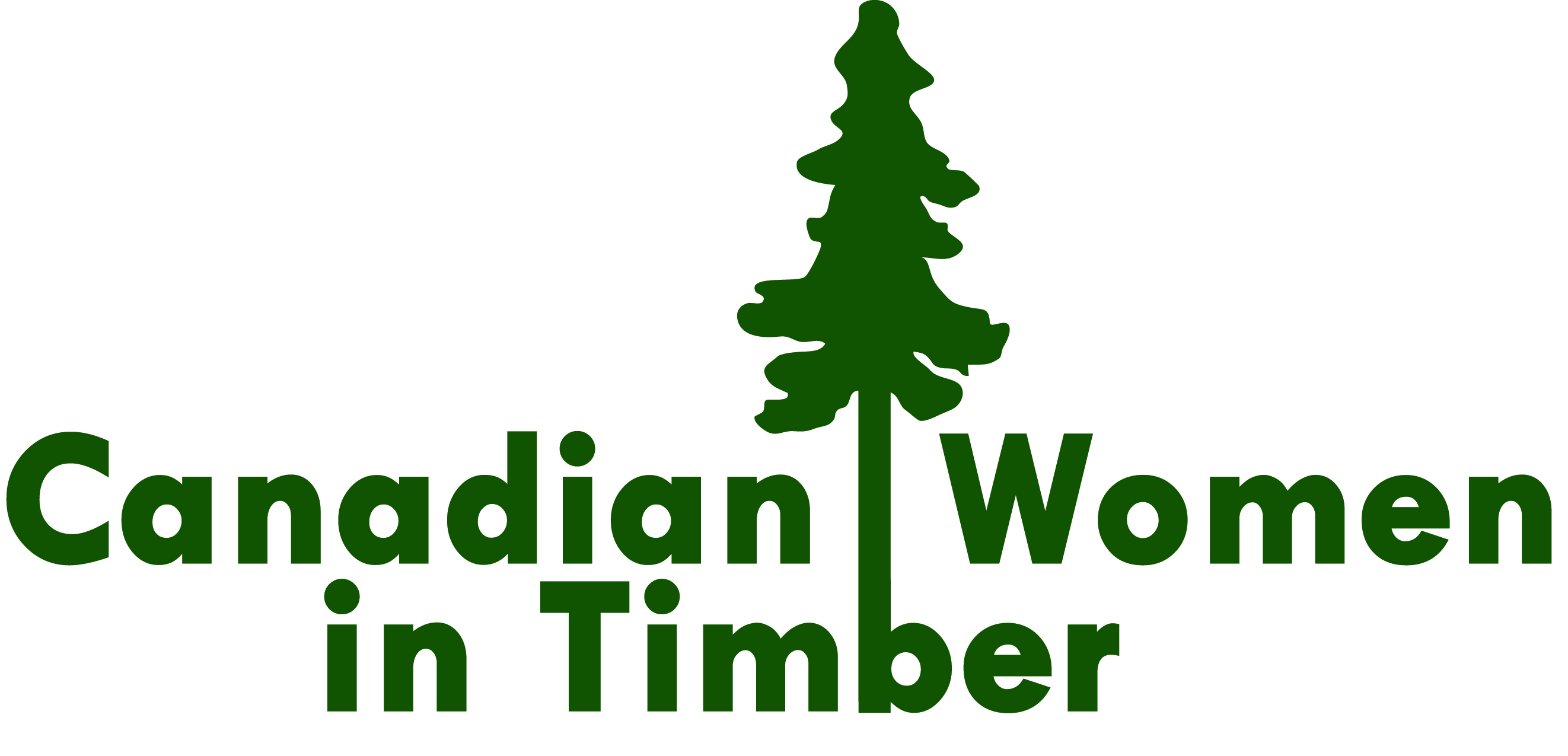 It is with a heavy heart that I announce—after more than 30 years—the Canadian Women in Timber are dissolving our organization. Since 1989 we have enthusiastically championed the forestry and logging sectors in British Columbia. We’ve collectively touched the lives of hundreds of thousands of school children, parents, teachers and community members – fostering an interest and passion for the natural science of forestry, management and operations/harvesting. Our educational materials have been re-published many times (with support from our sponsors) and are part of classroom sets and family bookshelves around the province and across Canada.
It is with a heavy heart that I announce—after more than 30 years—the Canadian Women in Timber are dissolving our organization. Since 1989 we have enthusiastically championed the forestry and logging sectors in British Columbia. We’ve collectively touched the lives of hundreds of thousands of school children, parents, teachers and community members – fostering an interest and passion for the natural science of forestry, management and operations/harvesting. Our educational materials have been re-published many times (with support from our sponsors) and are part of classroom sets and family bookshelves around the province and across Canada.

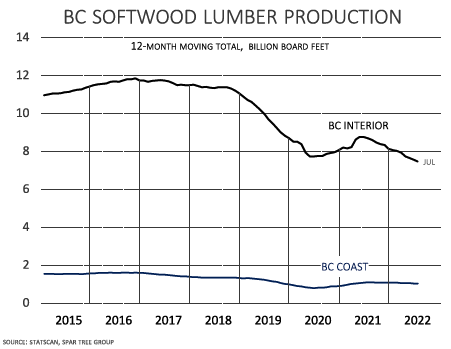 What have been the downstream effects of the reduced timber harvest? Lumber production province wide is down 12.7% ytd (July). Coast production is down 6.8% ytd. And interior production is down by 13.5% ytd to levels not seen in many decades. Timber supply issues have been a large part of that decline, especially for the interior. Other contributing factors include the collapse in lumber prices as well as transportation issues. …The following is a list of manufacturing facilities which have either permanently closed or temporary curtailed since Q4 2021. …No other provinces are reporting closures to the same magnitude. Conversely, there is relatively little new capacity being added. This is where things are at for British Columbia’s forest sector, and it’s not good. Unfortunately, Eby has already said his 100- day plan includes a pledge to accelerate the old growth plan.
What have been the downstream effects of the reduced timber harvest? Lumber production province wide is down 12.7% ytd (July). Coast production is down 6.8% ytd. And interior production is down by 13.5% ytd to levels not seen in many decades. Timber supply issues have been a large part of that decline, especially for the interior. Other contributing factors include the collapse in lumber prices as well as transportation issues. …The following is a list of manufacturing facilities which have either permanently closed or temporary curtailed since Q4 2021. …No other provinces are reporting closures to the same magnitude. Conversely, there is relatively little new capacity being added. This is where things are at for British Columbia’s forest sector, and it’s not good. Unfortunately, Eby has already said his 100- day plan includes a pledge to accelerate the old growth plan.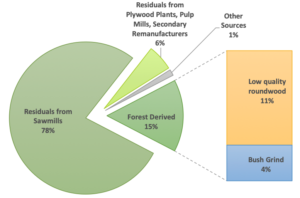 VANCOUVER, BC – A
VANCOUVER, BC – A 
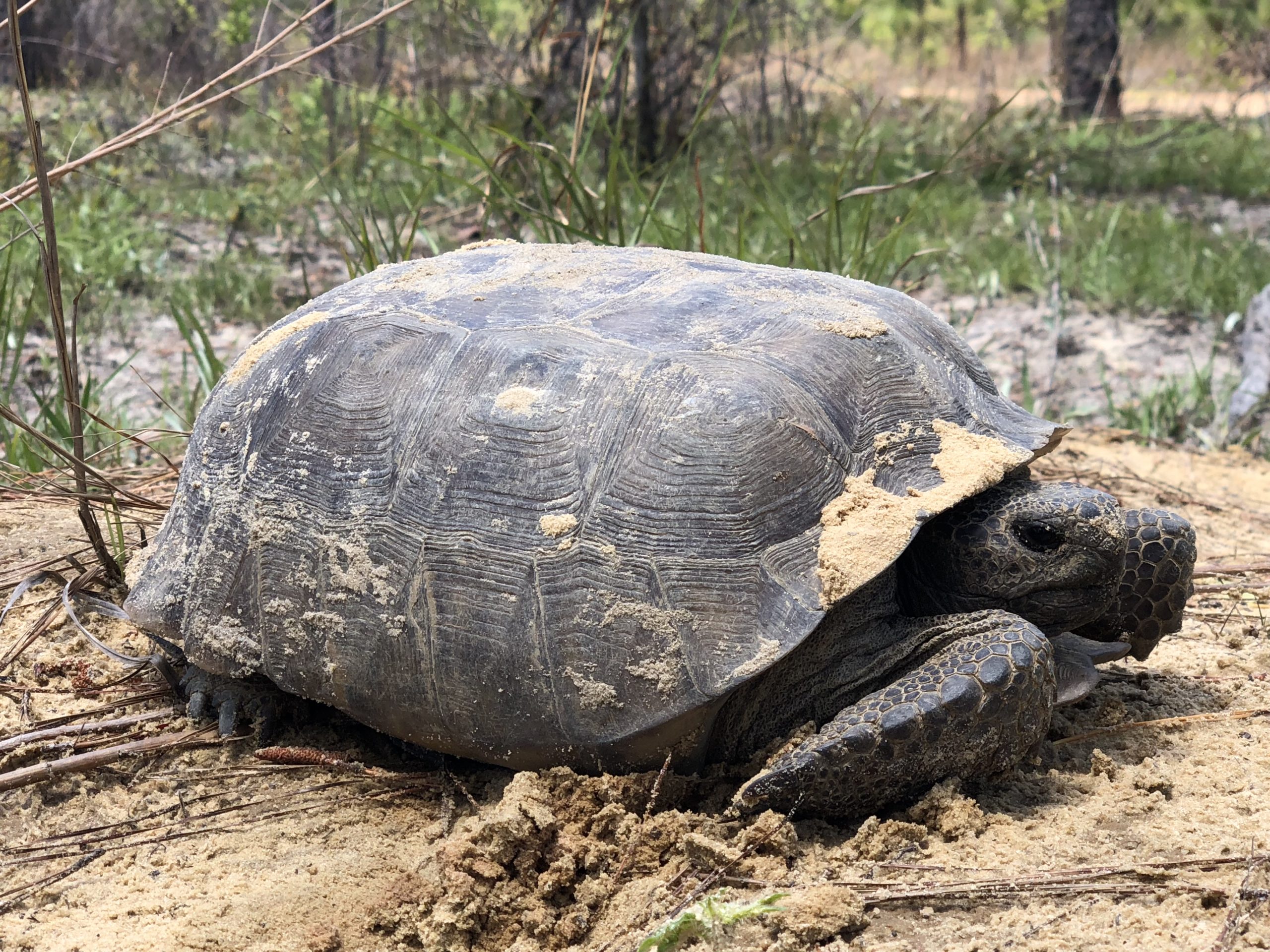 Forest owners in Florida, Georgia, South Carolina, and eastern Alabama breathed a sigh of relief on Tuesday, October 11, when the U.S. Fish and Wildlife Service (FWS)
Forest owners in Florida, Georgia, South Carolina, and eastern Alabama breathed a sigh of relief on Tuesday, October 11, when the U.S. Fish and Wildlife Service (FWS) 




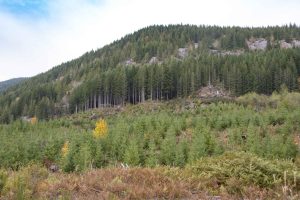 If humans stopped emitting greenhouse gases tomorrow and let nature take its course, it could take a million years for the carbon dioxide in our atmosphere to return to pre-industrial levels. Halting our emissions will be hard, but rapidly bringing CO2 levels back down will be stupendously challenging and costly. Canada’s forests could be an opportunity to help meet this global challenge. …Young forests are generally stronger C sinks because they contain younger and smaller trees, and have less organic material that’s actively decomposing. As trees grow and forest biodiversity increases, the processes of respiration (how organisms obtain energy to grow and reproduce) and decomposition both release progressively more CO2 each year, gradually decreasing the effectiveness of a forest’s C sink toward zero. Wildfires accelerate this process.
If humans stopped emitting greenhouse gases tomorrow and let nature take its course, it could take a million years for the carbon dioxide in our atmosphere to return to pre-industrial levels. Halting our emissions will be hard, but rapidly bringing CO2 levels back down will be stupendously challenging and costly. Canada’s forests could be an opportunity to help meet this global challenge. …Young forests are generally stronger C sinks because they contain younger and smaller trees, and have less organic material that’s actively decomposing. As trees grow and forest biodiversity increases, the processes of respiration (how organisms obtain energy to grow and reproduce) and decomposition both release progressively more CO2 each year, gradually decreasing the effectiveness of a forest’s C sink toward zero. Wildfires accelerate this process.